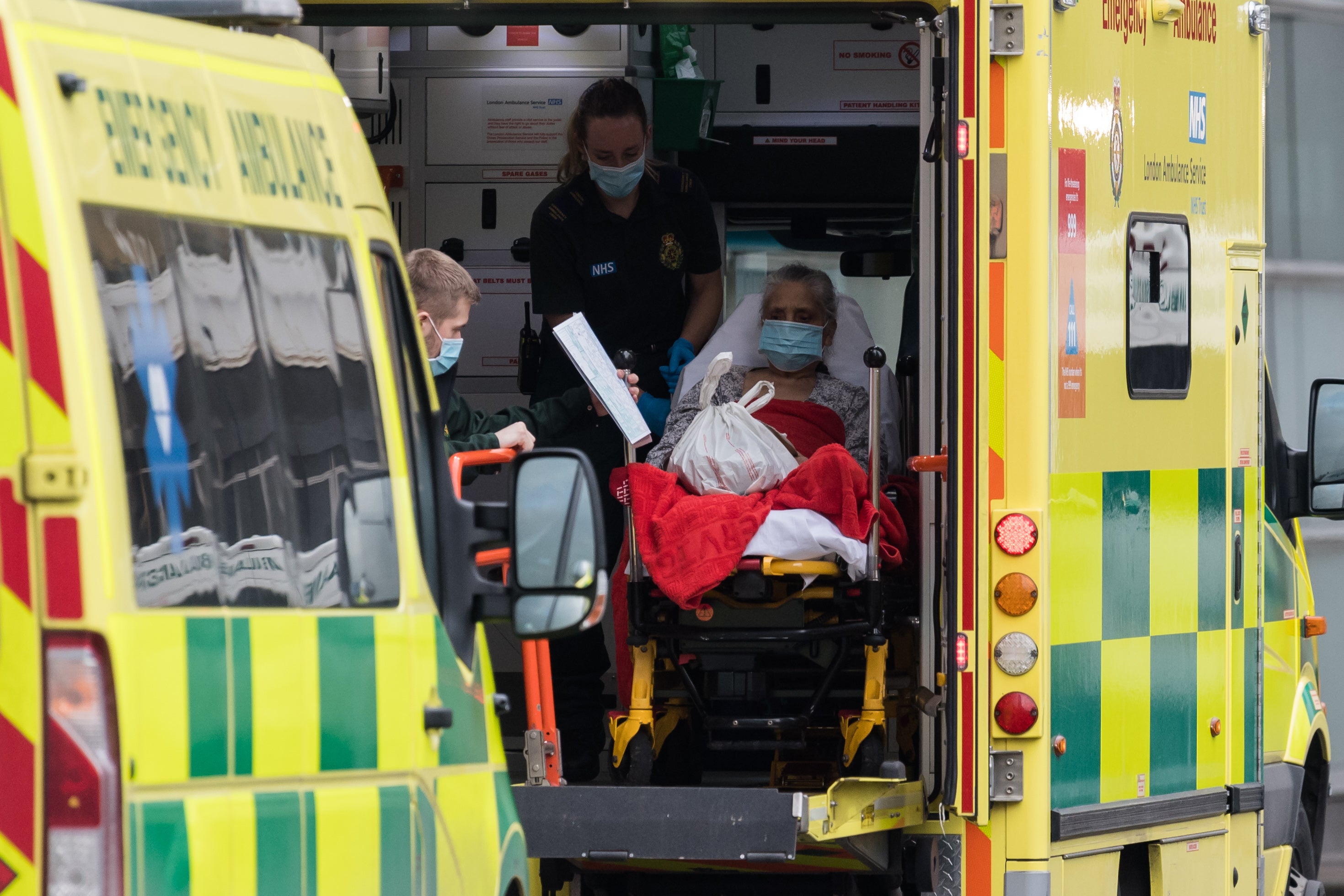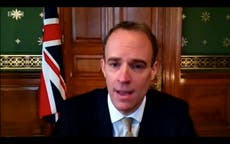Ambulance staff ‘at breaking point’ as new Covid patient admitted to hospital ‘every 30 seconds’
‘The facts are very clear and I’m not going to sugarcoat them, hospitals are under extreme pressure and staff are under extreme pressure,’ NHS chief executive says

Your support helps us to tell the story
From reproductive rights to climate change to Big Tech, The Independent is on the ground when the story is developing. Whether it's investigating the financials of Elon Musk's pro-Trump PAC or producing our latest documentary, 'The A Word', which shines a light on the American women fighting for reproductive rights, we know how important it is to parse out the facts from the messaging.
At such a critical moment in US history, we need reporters on the ground. Your donation allows us to keep sending journalists to speak to both sides of the story.
The Independent is trusted by Americans across the entire political spectrum. And unlike many other quality news outlets, we choose not to lock Americans out of our reporting and analysis with paywalls. We believe quality journalism should be available to everyone, paid for by those who can afford it.
Your support makes all the difference.A coronavirus patient is admitted to hospital every 30 seconds as the pandemic continues to grip the NHS, the health service’s chief executive warned yesterday.
Sir Simon Stevens said the NHS was in a perilous situation with 15,000 more inpatients than there had been on Christmas Day. Hospitals across the country have been told to brace for a peak in cases in the coming weeks, with many intensive care units already short on beds.
But he also offered some hope, revealing that the vaccination programme was delivering 140 jabs per minute, while foreign secretary Dominic Raab said the government aimed to offer a first vaccination to the entire adult population by September.
Previously the only commitment had been to offer the first dose to the four most vulnerable groups – over-70s, care home residents, health workers and those with serious underlying conditions – by the middle of next month.
As 38,598 coronavirus cases and 671 deaths were recorded yesterday, Sir Simon told the BBC’s Andrew Marr Show: “The facts are very clear and I’m not going to sugarcoat them: hospitals are under extreme pressure and staff are under extreme pressure.
“Since Christmas Day we’ve seen another 15,000 increase in the inpatients in hospitals across England. That’s the equivalent of filling 30 hospitals full of coronavirus patients. Staggeringly, every 30 seconds across England another patient is being admitted to hospital with coronavirus.”
Sir Simon told Marr that the health service would start testing 24/7 vaccinations in some hospitals in the next 10 days, and that he expected lockdown to be eased gradually around spring and summer time.
He said: “It is not going to be the case that on Valentine’s Day, with one bound, we are free. Equally, I don’t think we will have to wait until the autumn. I think somewhere between those two.”
But he warned that this forecast was subject to uncertainty around new variants of the coronavirus – particularly any that showed signs of resistance to available vaccines.
More than 3.5 million people in the UK have now received their first dose of a vaccine, and some 324,000 doses of coronavirus vaccines were administered in the space of 24 hours.
Also appearing on Marr, the foreign secretary said that vaccination could be completed even earlier than September if the capacity was available to do so, though government sources said reports of a private target of the end of June to get a jab to all over-18s were “speculative”.
But the foreign secretary told Marr: “The plan is to get the first 15 million most vulnerable people vaccinated with the first dose by the middle of February. We then want to get by early spring another 17 million. At that point we’ll have 99 per cent of those most at risk of dying of coronavirus administered with a vaccine. The entire adult population we want to have been offered a first jab by September.
“That’s the roadmap. We think we’ve got the capacity to deliver it. Obviously, if it can be done more swiftly than that, then that’s a bonus. The number one thing right now is to protect that roadmap and rollout and protect the NHS, given the new variants that we’ve seen.”
Mr Raab said the government hopes to start easing lockdown restrictions as early as March, but said measures would be eased gradually, rather than withdrawn overnight in a “big bang”.
He told Sky News’s Sophy Ridge on Sunday: “What we want to do is get out of these national lockdowns as soon as possible. The roadmap that I described is that by early spring, hopefully by March, we’ll be in a position to make those decisions.
“I think it’s right to say we won’t do it all in one big bang. As we phase out of the national lockdown, I think we’ll end up phasing through the tiered approach. We want to make sure that we can do it in a safe way. But again, we’ve got to, at this point in time, really focus on protecting the NHS and rolling out the vaccine. If we do those two things, we get into a much better place by early spring.”
Leading epidemiologist Professor Azra Ghani said a combination of low case numbers and having vaccinated the most vulnerable would be needed before restrictions could be eased.
She told Sky: “Really, we want to get back to the situation we were in in the summer, with relatively low case numbers compared to now, so that we can actually test and trace and reduce onward infections. At the same time we’re, of course, rolling out a vaccine; that’s something we haven’t had up until now and that vaccine rollout is going very well.
“That will hopefully protect those that are most vulnerable to the severe consequences of this disease. We’ll need to get a balance of these two things in place before we can start to lift restrictions and it’s very difficult to say exactly when that will be.”

Join our commenting forum
Join thought-provoking conversations, follow other Independent readers and see their replies
Comments